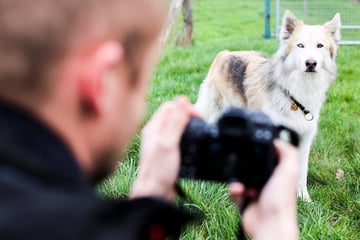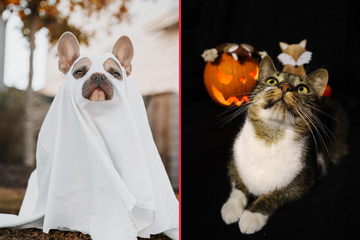Can dogs eat cheese?
If you have ever sat at the dinner table wondering, "Heck, you think it'd be okay to give the dog a little Camembert?" then today's your lucky day! Is cheese okay for dogs?
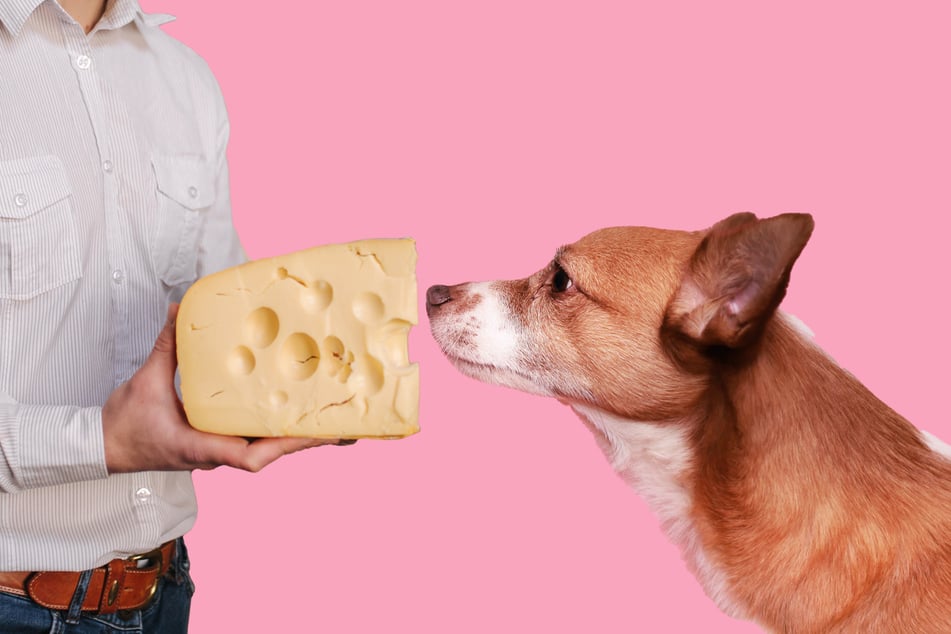
Every dog owner has had the urge – you know the one we're talking about – to give your dog that ball of fromage it has been staring longingly at ever since you sliced into its creamy, crumbly crevices.
From toasted cheese sandwiches to mozzarella-heavy lasagnas, cheese is something every dog yearns for.
No matter how deeply your dog desires something, though, you should know what you're doing before you provide it.
In this dog guide, TAG24 will take a look at whether dogs can eat cheese, whether they are lactose intolerant, and which cheeses are better than others.
Is it okay for dogs to eat cheese?
While cheese will not generally cause any long-term harm to your dog, it is not recommended. In moderation, your dog will have a tasty snack to enjoy and appreciate while it lasts. When it comes to most cheeses, however, this will then result in some pretty nasty side effects in a few hours' time.
If your dog eats a small amount of cheese off the floor or a slice of pizza, it's all going to be okay. Doggos are resilient creatures and will be perfectly fine. When that small amount of cheese becomes larger and increases in regularity and normality, though, it could be about to cause some pretty unpleasant and unhealthy gastrointestinal issues.
As a result, we recommend that you avoid feeding your dog cheese wherever possible. Don't freak out if it sneakily eats some because you accidentally left it in reach – but don't make it a habit!
Are dogs lactose intolerant?
Yes, all dogs are lactose intolerant. While not as severely intolerant as your average cat, your canine companion will get ill if it eats too much cheese on account of the high levels of lactose in many cheeses. Of course, different kinds of cheese have different levels of lactose, but all in all, it's just not a great idea.
It's not just the lactose in cheese that's a problem, however, as dogs will also struggle with the high amount of salt found in most of the cheese we eat. As a result, the first thing you might notice after your dog has chowed down – before the gastrointestinal issues from the lactose kick in – is their sudden need to drink lots and lots of water.
The following symptoms are common among dogs who have eaten cheese:
- Flatulence
- Heartburn
- Increased panting
- Diarrhea
- Abdominal pain
If your dog has eaten too much cheese, try not to worry too much. In the case that its symptoms do not subside within a day, however, or if your dog is having extremely distressing diarrhea, you must contact your veterinarian as soon as possible.
As in all things related to dog or even pet health, dog owners are responsible for what their dogs eat and how they respond to it. While you shouldn't freak out if your dog eats a little cheese, you should look out for problems and respond accordingly.
How often can dogs eat cheese and how much?
If your dog has a particular fondness for fromage, it is okay to give them a tiny amount (maybe two to three small squares) once or twice a week. You should never make it a standard and expected part of your dog's diet, however, and instead should make sure that cheese is only ever provided as a special treat.
Cheese, apart from the direct health implications, has a lot of fat in it and when consumed in high quantities it may cause serious weight gain. As a result, it is best to use it as a treat only if your doggo doesn't have a pre-existing weight problem and only when your doggo is already very highly active, fit, and has a healthy and sustainable diet.
Additionally, if you decide that cheese is the way to go when rewarding your doggo, please take it slowly. Give the pooch a very small piece at first and watch for symptoms to see how your dog tolerates the lactose – every dog is different! Digestive problems like heartburn and diarrhea are highly likely, and it is best that you are aware if your doggo is overly susceptible to them.
Ultimately, dog owners shouldn't give their beloved pups any cheese. They might be excited and happy about the fromage on your table, but it's just not worth the unpleasant side effects your dog could suffer.
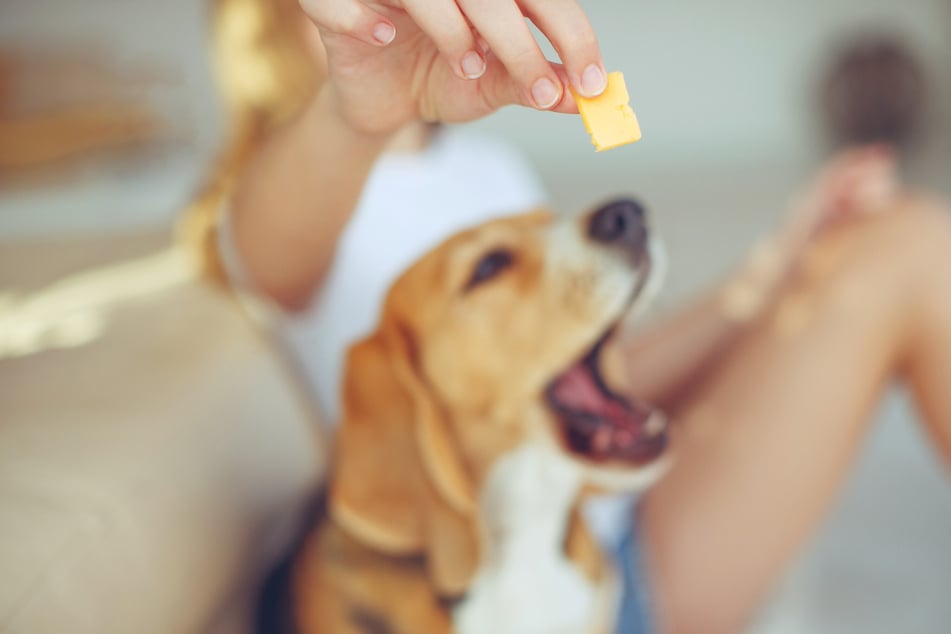
What kinds of cheese can dogs eat?
Not every cheese is the same, with many different types containing far less lactose than other counterparts. This is largely due to the method of production, the ripeness, and whether it is a hard or soft cheese. In general, harder cheeses contain less lactose – though, this is not always the case.
As you don't want your dog to develop gastrointestinal and digestive problems on account of a lactose overload, it is best to only allow it to eat small amounts of very specific low-lactose cheeses. This also goes, mind you, for all dairy products, as many of them are available in low-lactose or lactose-free varieties.
Here are the safest cheeses for dogs:
- Gouda
- Butter cheese
- Edam
- Grana Padano
- Pecorino
- Parmesan cheese
While these are marginally safer and less likely to give your dog digestive issues, they are still not recommended. If you want to give your dog cheese, choose one of these.
What cheeses are bad for dogs?
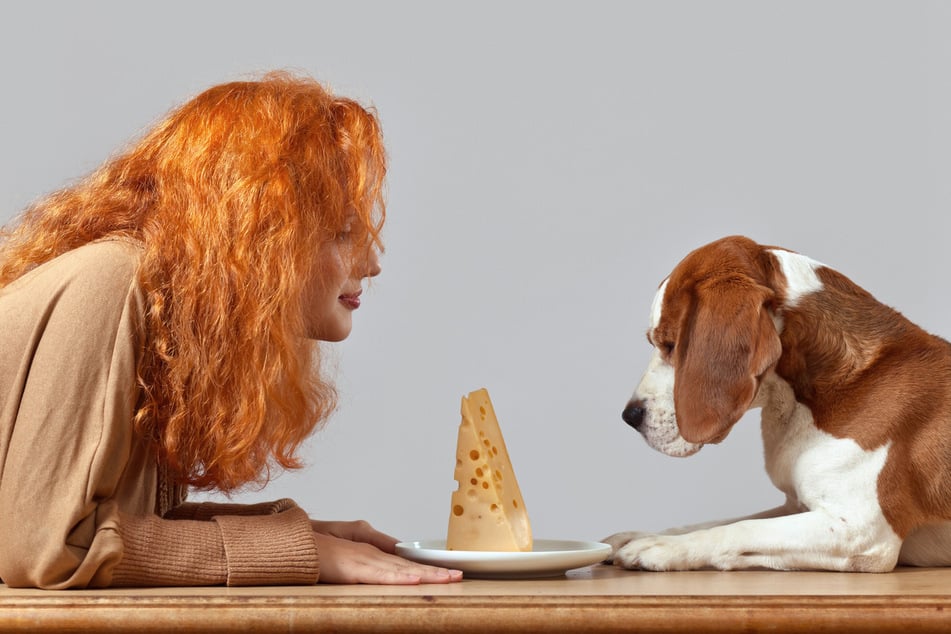
In comparison, many other cheeses are particularly high in lactose and should be avoided. If your beloved pup eats a type of cheese with extremely high levels of lactose, it is going to suffer more severe side effects than if it had eaten a kind of cheese that contains a lower concentration.
On top of that, any cheese that includes additives should be completely avoided. In other words, the cheese should be pure cheese and not some kind of mass-produced mishmash of processed chemicals like American cheese singles. Additionally, spiced and boutique cheeses should be avoided as the added ingredients could cause problems.
These cheeses are especially bad for dogs:
- Processed cheese (such as American cheese singles)
- Cream cheese
- Cooked cheese
- Soft cheeses (Brie, Camembert)
- Blue cheese
- Mozzarella
- Cheese with spices
- Cheese-based spreads for bread
Ultimately, you will want to know what you are feeding your dog. If it has anything extra in it or is super high in lactose, your dog should avoid it like the plague.
Can dogs have milk? What about yogurt?
Standard milk is very high in lactose, so is not a good idea for dogs. Yogurt, however, is a slightly different story. Due to the process of making yogurt, the amount of lactose is far less than in most cheeses and milks. As a result, provided that the yogurt is given in small amounts and is unsweetened (i.e. only plain yogurt), it is generally okay to give it to dogs.
All things dairy should only be provided to dogs in moderation. While lactose intolerance isn't going to kill or permanently harm your dog, it can do significant damage if the intolerance is constantly being triggered. A small amount of cheese is okay, a bit of yogurt is fine, but only a little and once in a while.
The problem with dogs is that they tend to want to over-indulge. As a result, the key lesson to be taken away is that if your dog eats some cheese that it shouldn't have, there's no reason to freak out, but be the cheese warden and make sure they don't do something they'll come to regret when the tummy ache kicks in!
Cover photo: 123RF/Gritsiv/Alex Gruber


